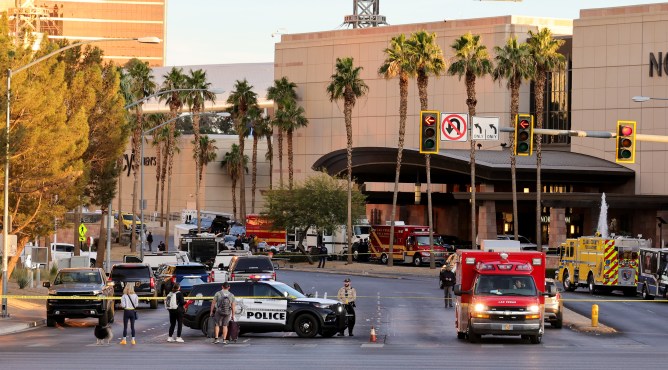In a shocking turn of events, two individuals rented cars from Turo, a peer-to-peer car-sharing platform, and used them to commit acts of violence earlier this week. First, a military veteran driving a Ford F-150 Lightning drove into a crowd of people in New Orleans, killing at least 15. Then, an active-duty Green Beret rented a Tesla Cybertruck, parked it in front of the Trump International Hotel in Las Vegas, and allegedly blew it up. The driver died by suicide.
Turo’s Response
On Friday, Turo’s chief executive, Andre Haddad, released a statement expressing his outrage at the misuse of their platform. He noted that Turo is working "around the clock" to determine how the platform could have been used for such heinous crimes.
The Question of Prevention
However, many are left wondering how Turo or any similar platform could have prevented this. With millions of people using peer-to-peer car-sharing services like Turo, it’s a concerning question that needs to be addressed.
How Turo Screens Renters
Turo has been described as the "Airbnb for cars," where vehicle owners can rent out their cars for extra money or even as a full-time business. Many of Turo’s hosts rent out three or more vehicles on the platform at a time. To mitigate potential risks, Turo claims to screen each renter through a proprietary multi-layer, data-science-based trust and safety algorithm called the Turo Risk Score.
What Does This Mean?
But what exactly does this mean for users? Is Turo performing normal criminal background checks? The company has not responded to TechCrunch’s request for clarification. Over the years, some bad actors have managed to slip through the cracks, embroiling Turo in controversy after cars on its platform have been found to be used for human and drug trafficking.
Hosts Speak Out
People who claim to be hosts regularly post on the Turo subreddit page about their cars being rented out to individuals with criminal histories. This raises concerns about the effectiveness of Turo’s screening process.
The Perpetrators
Even if Turo’s background checks were foolproof, the two perpetrators of the crimes that happened this week in New Orleans and Las Vegas had valid driver’s licenses, clean criminal backgrounds, and were decorated U.S. military servicemembers, according to Haddad. "They could have boarded any plane, checked into any hotel, or rented a car or truck from any traditional vehicle rental chain," he said.
Why These Individuals Were Not Flagged
Turo’s CEO notes that even law enforcement might not have been able to flag these individuals. "We do not believe these two individuals would have been flagged by anyone — including law enforcement," Haddad stated.
Turo’s Statistics
In a bid to reassure users, Turo claims it has facilitated 27 million trips over 12 years, and fewer than 0.10% have ended with a serious incident like a vehicle theft.
What’s Next for Turo?
Haddad notes that the company is investing in improving its risk score algorithm and has assembled a team of former law enforcement professionals to help assess future risk. "We’re consulting with national security and counterterrorism experts to learn more about how we can get even better and play our part in helping prevent anything like this from happening ever again," Haddad said.
The Industry’s Response
This incident has raised questions about the safety and security of peer-to-peer car-sharing platforms. As the industry continues to grow, it’s essential that companies like Turo take steps to ensure that their platforms are not used for malicious purposes.
The Need for Regulation
With the rise of sharing economies, there is a need for clearer regulations and guidelines for these platforms. Governments and regulatory bodies must work together with companies to create a safer environment for users.
Conclusion
The incident involving Turo’s cars highlights the potential risks associated with peer-to-peer car-sharing services. While Turo has taken steps to address this issue, it’s clear that more needs to be done to prevent such incidents in the future. As the industry continues to evolve, it’s essential that companies prioritize user safety and security above all else.
Recommendations
- Clearer regulations: Governments and regulatory bodies must work together with companies to create clearer guidelines for peer-to-peer car-sharing platforms.
- Enhanced screening processes: Companies like Turo should invest in more robust screening processes, including background checks and monitoring of user behavior.
- User education: Users must be aware of the potential risks associated with these services and take necessary precautions to ensure their safety.
By addressing these concerns and implementing effective measures, companies can provide a safer experience for users while also mitigating the risks associated with peer-to-peer car-sharing platforms.

